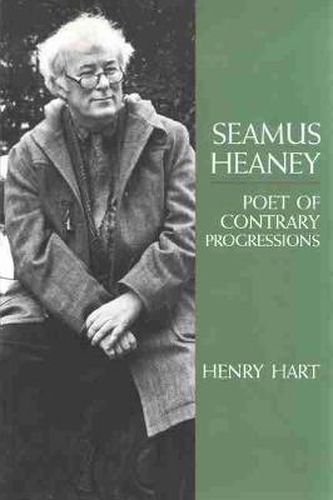Readings Newsletter
Become a Readings Member to make your shopping experience even easier.
Sign in or sign up for free!
You’re not far away from qualifying for FREE standard shipping within Australia
You’ve qualified for FREE standard shipping within Australia
The cart is loading…






Seamus Heaney, widely considered the most gifted living poet in Ireland and Britain, is the first Irish poet since Yeats to gain an international reputation. In this remarkable study, henry Hart discusses Heaney’s poems, his creative and personal situations, and his assimilation of contemporary literary theory. From Heaney’s Ulster background to poetic influences as diverse as Dante and Wordsworth, Yeats and Bly, Hart offers sophisticated, lucid insights.
Hart argues that the best way into Heaney’s poetic world is in seeking to understand him-as with Blake and Yeats-in terms of oppositions and conflicts, progressions and syntheses. At the root of all his work is a multifaceted argument with himself, with others, with sectarian Northern Ireland, with his Anglo-Irish heritage, with his Roman Catholicism, and with his Nationalist upbringing on a farm in County Derry.
For each volume of poems, from Door into the Dark to The Haw Lantern, Hart identifies and works with a specific problem in the text, while developing its intellectual and creative implications. He covers aspects as diverse as Heaney’s incorporation of antipastoral attitudes in his poems, his fascination with how etymology recapitulates ancient and modern history, and apocalypticism in North. Placing his trust in art’s ability to confront conflicts between freedom and responsibility, between private craft and public involvement, Heaney is shown nonetheless to chastise himself for failing to have a greater impact on the situation he left behind in Northern Ireland.
In pursuing the literary, religious, and political themes in his books of poetry, Hart shows that Heaney is no provincial bard, as some critics have suggested, but is as intellectually informed and astute as any postmodernist writer. Any reader of Seamus Heaney’s poetry, and any poet, poetry scholar, critic of contemporary poetry, or student of Irish literature will gain much from reading this book.
$9.00 standard shipping within Australia
FREE standard shipping within Australia for orders over $100.00
Express & International shipping calculated at checkout
Seamus Heaney, widely considered the most gifted living poet in Ireland and Britain, is the first Irish poet since Yeats to gain an international reputation. In this remarkable study, henry Hart discusses Heaney’s poems, his creative and personal situations, and his assimilation of contemporary literary theory. From Heaney’s Ulster background to poetic influences as diverse as Dante and Wordsworth, Yeats and Bly, Hart offers sophisticated, lucid insights.
Hart argues that the best way into Heaney’s poetic world is in seeking to understand him-as with Blake and Yeats-in terms of oppositions and conflicts, progressions and syntheses. At the root of all his work is a multifaceted argument with himself, with others, with sectarian Northern Ireland, with his Anglo-Irish heritage, with his Roman Catholicism, and with his Nationalist upbringing on a farm in County Derry.
For each volume of poems, from Door into the Dark to The Haw Lantern, Hart identifies and works with a specific problem in the text, while developing its intellectual and creative implications. He covers aspects as diverse as Heaney’s incorporation of antipastoral attitudes in his poems, his fascination with how etymology recapitulates ancient and modern history, and apocalypticism in North. Placing his trust in art’s ability to confront conflicts between freedom and responsibility, between private craft and public involvement, Heaney is shown nonetheless to chastise himself for failing to have a greater impact on the situation he left behind in Northern Ireland.
In pursuing the literary, religious, and political themes in his books of poetry, Hart shows that Heaney is no provincial bard, as some critics have suggested, but is as intellectually informed and astute as any postmodernist writer. Any reader of Seamus Heaney’s poetry, and any poet, poetry scholar, critic of contemporary poetry, or student of Irish literature will gain much from reading this book.